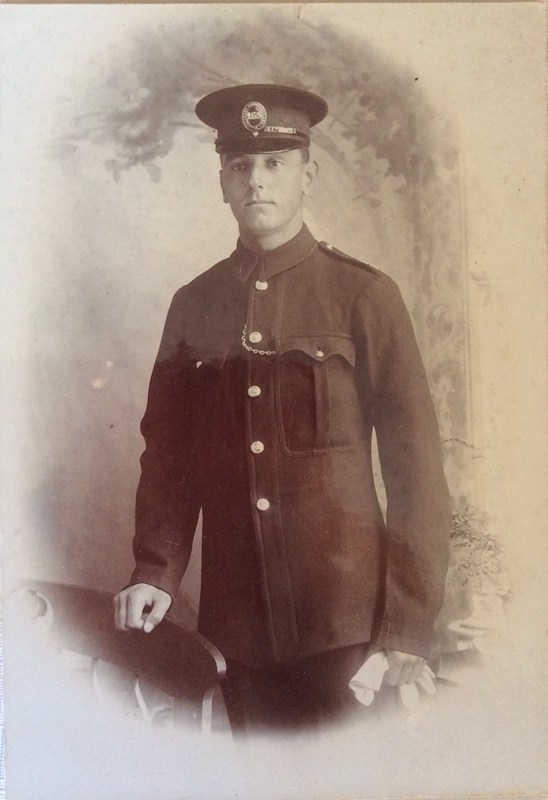
In July 1917 the DSJC meet for its quarterly meeting and had to discuss officers pay again as there were 4 Sgts and 9 constables who could have retired but were being kept on because of the war. In August the Constabulary were informed of the death of another officer, Cpl 41873 Albert HILL (above) of 8th battalion Royal Inniskilling Fusiliers, formerly Pte 27190 of the 6th Dorset Regt, who was killed on the 5th August.
Albert joined the Dorset Constabulary in March 1914 as a single man and was posted to Lyme Regis. During the early part of the war he was moved to Sherborne and later moved again to help with security at the Torpedo works in Wyke Regis. In December 1916 he resigned from that post and joined the 6th Dorset Regiment along with 5 other single Constables. On the 2nd January 1917 he married his fiancée, Henrietta HOOPER at Lyme Regis, before being sent abroad to fight with his unit. He must have come home in June 1917 and then returns to the Army with the 8th Battalion of the Royal Inniskilling Fusiliers and died in Belgium on 5th August 1917. His widow had a baby girl who she named Henrietta as well on 3rd March 1918 but at the age of 25 she dies around June 1919 and their baby is brought up by an aunt. Baby Henrietta survived and later marries and has children and because of that, his granddaughter Susan CHITTY has posted some photos and information on the below WW1 site. livesofthefirstworldwar.org/lifestory/1869746
On the 14th August Sgt 16076 Henry Frank HANN, Corporal of 2nd Battalion of the Dorset Regt, service no:16076, died from his wounds in hospital at Baghdad. His mother Elizabeth lived at Osmington cottage, Weymouth. Harry as he was known, was born at Knighton near Beer Hackett on 5th Aug 1888 where his father Albert was a Farm Labourer. Harry and his elder brother Albert followed suit in their juvenile years until Albert became a Railway labourer and Harry was a carter. Harry joined the Dorset Constabulary as PC 180 in the summer of 1914.
In October PC 73 Charles LIGHT, of the Shaftesbury Division retired after 26 years’ service as he was medically unfit for further police duty. The Force by the end of 1917 was now 35 officers under strength.
On the 21st January 1918, another Dorset constable, Gunner John Robert BROOMFIELD, of the Royal Garrison Artillery, service no: 162770 died in action in France. A few weeks later PC 135 Robert PEARCE, Poole retires on ill health after over 26 years and PC 134 George CORNICK from the Wimborne Division also retired. Both officers also started their careers in the Poole Borough police. The strength of the Force was then 185 in total, 150 original, 22 police pensioners, 13 civilians, 11 special war duties, but 44 under strength.
On February 13th ex PC, Cpl Arthur FOSTER RGA was discharged from the Army on ill health and LCpl 7461 William LEWIS of the Somerset Light Infantry also returned to the Constabulary as medically unfit for the Army after one of the 7 reservists called up for the BEF. He had to be replaced so the next call up was, PC 160 Joseph OSBORNE, who took his place after arrangements with the war office and he was released from the Force on May 9th. In between on the 14th February Sgt George ANDREWS retired on ill health.
The next five weeks were the worst time of the war for the Country and the Constabulary as on March 26th another PC was killed. Gunner 162962 Joseph COTTRELL, of the 12th mountain battery, Royal Garrison Artillery (RGA) died in action in Egypt. Joseph joined the Dorset Constabulary in either late 1912 or early 1913. He was born in April 1891 in Corfe Castle when his mother Hannah was 32 and his father Joseph 45 years old. He and his 3 older siblings lost their father 2 months later and his mother was left to bring them up until she remarried in 1894 to Charles MARSHALLSAY. Joseph then had 2 step brothers, the eldest being Sidney Charles MARSHALLSAY, who was 4 years younger than Joseph, unfortunately he was killed in action in France on 2nd July 1916 when fighting with the 6th Battalion of the Dorset Regt. On the 26th May 1917 just after he had enlisted with the RGA, Joseph married Ethel Phyllis GIBBS, on the marriage certificate is says he is a Police Constable living at 4 Lucas Road, Branksome, which was her family’s home. Ethel had also lost two of her older brothers. Arthur Sydney GIBBS, who died of disease whilst in Iraq on 29th April 1916 whilst serving with the Connaught Rangers and Sidney Thomas GIBBS of the 6th Battalion of the Dorset Regt died in action in France on 21st August 1916. On the 21st February 1918 Ethel gave birth to their only child Phyllis Annie COTTRELL in the Poole area. Mrs Ethel COTTRELL, widow of PC Joseph COTTRELL was later granted a pension by the Dorset Constabulary.
Officers from the Branksome area, but not identified.
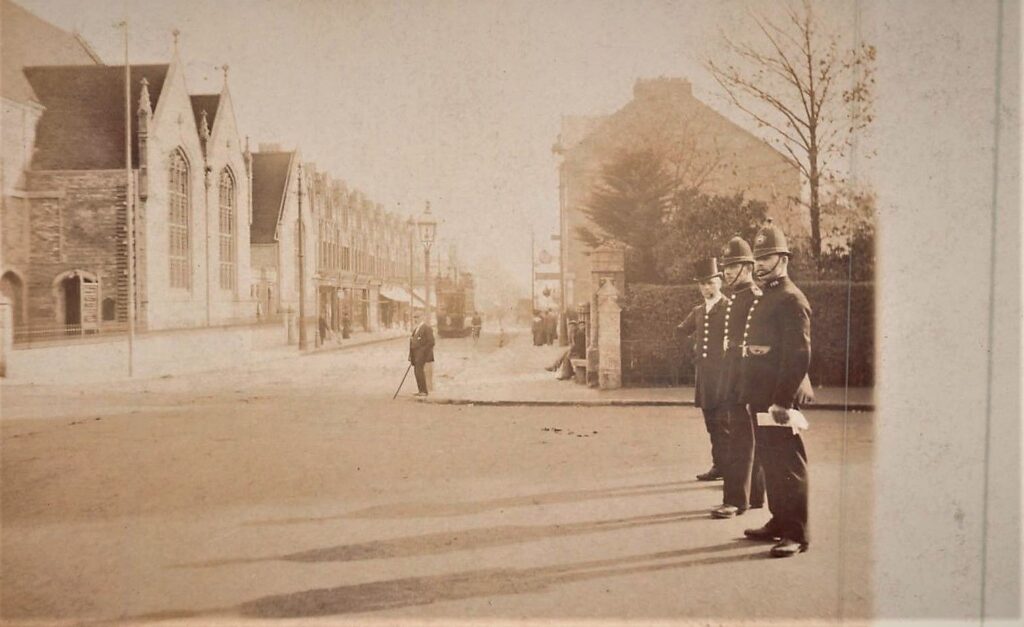
On the 28th February the CC had much pleasure in passing a letter from the Secretary of State expressing his satisfaction with the officers working in conjunction with the War Office, regarding aliens and suspicious persons. The officers commended were Deputy CC, William Patrick PLUMMER, Superintendents, William BOWLES, James SIMS and Ernest SPRACKLING
On the 20TH April LCpl 103615 George CHARLTON, of the Royal Engineers was wounded. The following day LCpl 27120 William Alfred PAINTER, who was serving with the 3rd Battalion of the Dorset Regt died in France. William PAINTER (or PAYNTER) was born in Dorchester in April 1890 and was a book binder in the town before he joined the Constabulary in 1913. He and his mate Alfred George DURANT enlisted with the 6th Battalion of the Dorset’s at Dorchester in December 1916.
The CC was under pressure from the Secretary of State to release more Constables for war duty which meant on the 21st April after passing a medical the following married officers joined the Army:
PC 161 Albert Henry EDWARD READ,
PC 16 Albert Ernest JAMES,
PC 61 Basil Warren JAY,
PC 163 Bertram Ernest SMITH,
PC 51 Robert William NOTLEY,
PC 173 George CLOTHIER,
PC 164 Robert BOOL
PC 104 William James SMITH.
On the 27th April 19187, LCpl 7097 Stephen REED, of the 1st Battalion Coldstream Guards and then later the Corps of Military Police, service no:7097. PAINTER and REED both died after suffering for a while in hospital. Stephen REED was born in the summer of 1887 in Bridgwater. His father also Stephen REED/REID in 1901 was a Carter for the Town Council, while Stephen the younger was working as an errand boy at the docks. In January 1907 he joined the 1st Battalion of the Coldstream Guards on a 3 year engagement until January 1910, when he joined the Dorset Constabulary as PC 14 and was stationed at Dorchester where in 1913 he married Emily Maud Bowers and on 8th March 1914 his son Stephen George REED was born at Bridgewater. In August 1914 when he was stationed at Swanage, where his family where living in the police station. At the outset of war on 13th August he returned to the Coldstream Guards in London and on 18th November 1914 the Bridgwater Mercury reported ‘HOW THE COLDSTREAM GUARDS HAVE BEEN BATTERED”. This was a letter he sent, whilst wounded to his sister Mrs F HIGGINS of 81 West St, Bridgwater, which reported how he had taken a bullet through the fingers and the heavy fighting in the Mons campaign. Two years later he transferred to the Military Foot Police and he served as a detective in Paris for a year before granted leave for a week from 27 October 1917. On 21st on April 1918 he was so ill he was admitted to a French hospital who realised quickly that he needed to be sent home to England. Arriving in Hampshire on the 25th April he was nursed until two days later his wife was sent a letter to say he was seriously ill and she needed to visit the hospital. Unfortunately, she did not get there in time as he died the same day. On the 8th May 1918 the Bridgwater Mercury reported, the funeral of Mons man, Cpl REED of Bridgwater. It stated he had died from pneumonia and was from West Street. His military record says he was brought back home and died of tuberculosis in the Royal Victoria hospital at Netley, Hampshire. Stephen was buried at Bridgewater Cemetery with full military honours.
Three days later , PC 151 James HOUSE, Sgt 201819 of 2/4th Battalion of the Dorset Regt, died at the age of 28 whilst in action in Egypt. James was born in Maiden Newton on 26th July 1891. He married Ethel Mary Clothier on 15 Aug 1909 in Maiden Newton and then they moved to South Wales where he worked as a coal hewer. He joined the Dorset Constabulary on 2nd Aug 1911, and he was first stationed at Bridport and later due to some indiscretions was moved to Portland in 1913 which was a very busy naval base in the early 20th century. This newspaper photograph shows him standing far right outside the Portland police station.
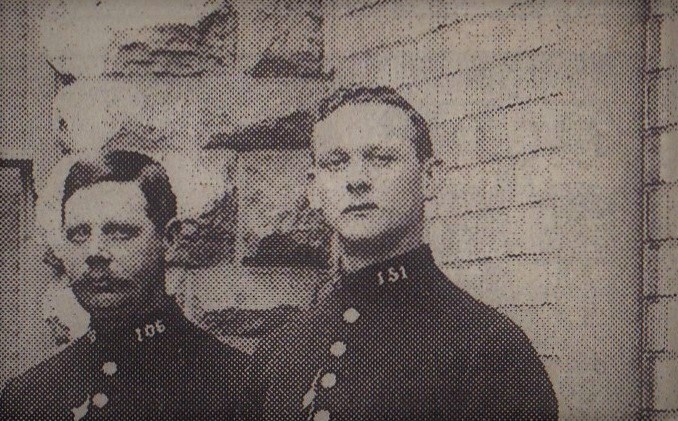
He was originally mentioned at the Dorset Standing Committee meeting in Oct 1915 as ex PC James HOUSE, who has made an application to learn motor driving for the purpose of joining the Army Transport Service and had resigned. He did not intend to return to the police service. He was described as a well conducted man and he recommended the sum of 5 pounds and 17 shillings be returned to him, which was agreed to. Portland was a very difficult place to Police in those days as any outsider not born on” the rock ” were not accepted easily, so it was a hard posting. So maybe that had a bearing on his decision to leave. He enlisted in early 1917 and after being trained he left for India on March 19th and later went to Egypt on September 28th 1917. He was a smart, capable soldier, and soon rose to the rank of sergeant. A sympathetic letter to his mother from his Commanding Officer says: Sergeant HOUSE was killed in action while doing gallant work on the night of April 30th, he adds during the time he has served with me I could not have wished for a braver or more gallant soldier. A number of his brother N.C.O.’s have also written expressing great esteem for the deceased deep sympathy. “By his death the Company has lost one its most liked non-commissioned officers.” Sergeant leaves a widow and three little girls, for whom the greatest sympathy is felt.
On May 4th PC 125 Frank SYMES was removed from his temporary post at the torpedo works and PC 124 James LOVELESS retired on 26TH MAY as unfit after over 26 years’ service. In July, it was disclosed that in total 57 volunteers had been called up and 39 pensioners had responded to duty. Some good news was reported, PC 172 Tom RIDOUT who joined the army in January 1917 in Dorset Regt had been commissioned as was PC 101 Sidney BAIGENT.
On the 8th September it was reported that Sgt 72097 Arthur STEELE, of the 9th Battalion Cheshire Regt, had died in action on 31st August. Arthur’s father George was a Gunner in the RHA and Arthur was born in the barracks at Scarborough in October 1893. George was from Milton Abbas and served in England and Ireland and on completion of his service he and his family returned to live in the Chickerell area of Weymouth. In 1914 Arthur joined the Dorset Constabulary as PC 181 and was one of the first to enlist with the Dorset Regt in December 1915, he rose to the rank of Sgt whilst at Bovington Camp. On the 9th May 1916 he married Amy Elizabeth Maud Montgomery in Edmonton, London and on 27th September 1916 they had a son Arthur Andrew George STEELE who was born in London. In November 1917 as a Sgt he transferred to the Devon Regiment and on the 16TH April 1918, he again transferred to the Cheshire Regt. Whilst at the front on the 24th August 1918 he suffered several gun shot wounds to his shoulder and left leg and was sent back to England. He was admitted to the 1st Western Hospital at Fazakerley, Liverpool where he died. Below is a photograph of Arthur STEELE and his sister.
Photograph with thanks to Brian MARLOW and Roy STROUD.
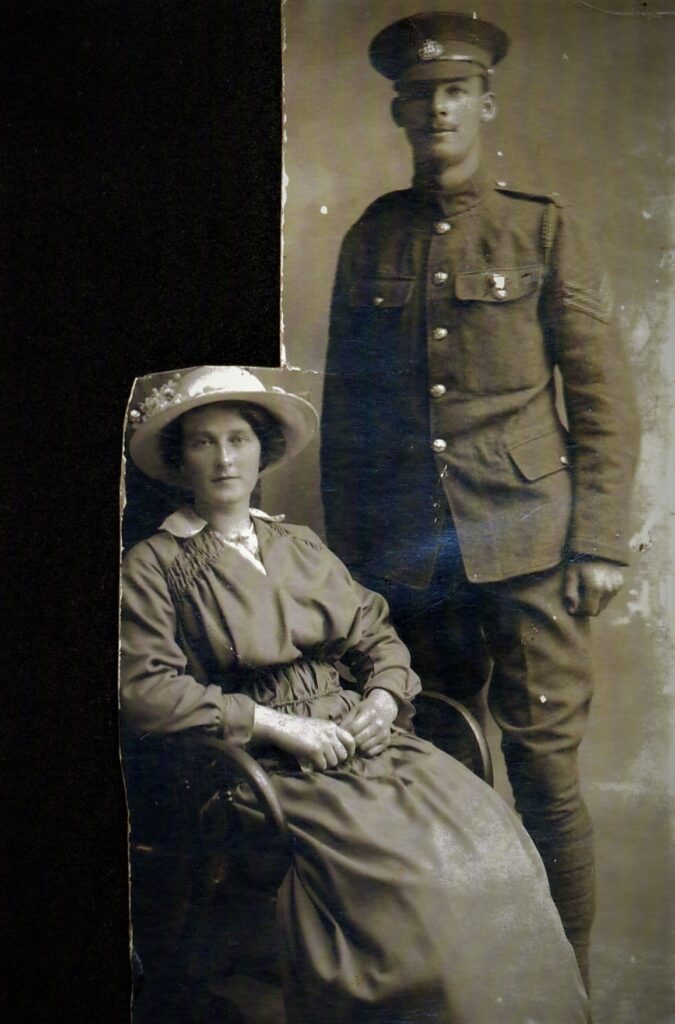
In October 1918, Supt Arthur SWATRIDGE of Sherborne was informed that his eldest son, LCpl Arthur Charles SWATRIDGE of the Queens Own Dorset Yeomanry had been wounded for the third time on the 15th September. At the outbreak of the war Arthur had resigned his job in London, returned to Dorset and re joined the Yeomanry. He joined his brother Cecil Bertram SWATRIDGE and they both went East with the 1st Yeomanry. Whilst at Gallipoli they were both wounded on the same day in 1916. Arthur Jnr, recovered and took part in the battle of Agagia against the Sensussi and was wounded for a second time at Gaza in July 1917 and now was again wounded in Palestine. The brothers had not been home in 4 years and Arthur Jnr, described his life as “like gypsies, here today and gone tomorrow”. Cecil joined the police after the war but Arthur was turned down as too short.
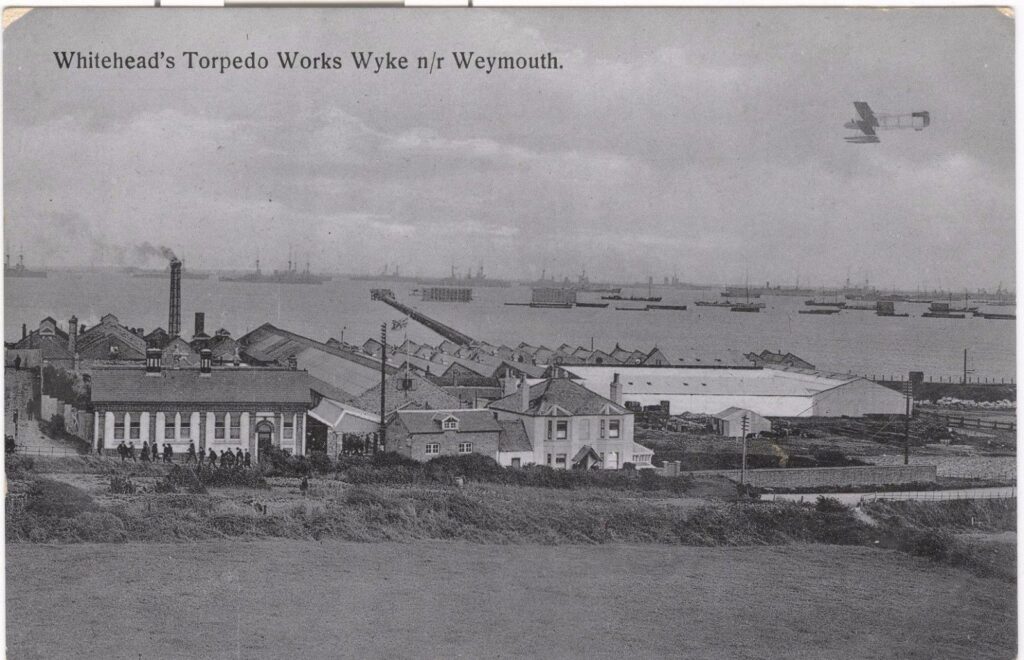
Some good news came at the end of the 1918, in that PC 71 Fred NORRIS was awarded the Military Medal for the brave act of helping to save the RGA’S company’s guns. and that the Dorset police security guard were stood down from the Whitehead Torpedo Works at Wyke Regis on the 8th December.
On the 27th Dec, PC’s 61 JAY, 16 JAMES, 164 BOOL, 163 SMITH, 158 CHARLTON were demobilised and reappointed. PC 172 RIDOUT had decided he preferred life as an officer in the Army and decided he would not be returning.
By the beginning of 1919, other officers were demobilised from the Army and Navy, the first were: PC’s 167 OSMAN, 139 BURROUGH, 28 BARTLETT, 71 NORRIS, 177 PARK, 104 SMITH and 101 BAIGENT. Not long after at the first DSJC meeting of the year the CC reported to the committee that 11 PC’s had returned to duty after being demobilised from the army and the rest were due back soon. These included PC’s 33 DIMENT, 161 READ, 68 BRICKELL, 146 BARRETT, 166 WOOD, 41 WELSH, 94 CARTER, 39 LOVELACE, 127 COPP, 88 MARGRIE, 171 MONTAGUE , 51 NOTLEY and 176 BEST who were all back by the 17th February. He also stated that in March if peace is signed , about 25 men will be ready to retire, still 10 roughly to return from the army, so by August he would need to recruit about 60 men. He continued that there were quite a lot of married men wanting to join after advertising, but a lack of police housing meant it would be hard to recruit them, so funding would be needed to pay their rents. Due to the lack of man power the committee had no choice but to agree. A month later, by the 17th March, PC’s 179 SCREEN, 162 YOUNG, 112 CASE, 45 TOLLEY, 173 CLOTHIER, 40 GUPPY, 143 LOCKYER, 174 WHITE and 34 LAKE were also back in the County.
Retirements started to be granted in March and April with PC 37 James STAUNTON of Portland finishing after more than 26 years, on March 15th. Sgt Albert SQUIRES of Poole then also retired after serving for over 29 years on April 2nd. Although it was a time of even tighter budgets, Superintendents BECK, SPRACKLING and WHITE complained to the DJSC that the police motorbikes were not satisfactory for transport, and they wanted them replaced by cars. At that time, the CC said the force strength was now, 174 officers plus 20 pensioners, 14 supernumberees and 3 recruits.
In April, 3 more officers returned from the Army having been demobilised , PC ‘s 6 GENGE, 17 BARTLETT and 119 BAILEY.
The DSJC had to arrange a hurried meeting in June after they found out that the Force might go on strike for more pay after the Met were preparing to do so. It seemed although everyone was so happy the war was over there was even more pressure on all because finances were down to the bone. Everyone was looking for a better future and to keep their family secure, PC 74 Robert John BROMFIELD left after being an army Staff Sgt as his prospects were better an PC 104 William James SMITH resigned to start a plumbing business. In October at the DSJC it was reported that PC 153 Sam COOMBS on the battle field had lost his right foot and a finger by amputation, but now had a plastic foot. The CC wanted to keep him, so the Committee agreed he can keep his job as a station officer and he was later reinstated on 17th November. The CC also said that the Force size would have to grow because of rest days being introduced, so one extra officer was required per six men. This meant that at that time with 24 Sgt’s and 165 PC’s, an increase of 4 Sgts and 27 PCs was required. The CC went on to state, that he had already got one extra Sgt and 16 PC’s so now he still needed 3 Sgts and 11 PCs.
By October the following men qualified for pension and retired.
Supt William BOWLES Poole
Supt Victor WHITE, Sturminster Newton
Sgt Robert OTTER, Blandford
Sgt Francis MILLER Poole
Sgt Samuel BISHOP, Shaftesbury
Sgt James STOCKLEY Bridport
PC 92 Isaac CONWAY Bridport
PC 108 Herbert VATCHER Wimborne
PC 27 Robert BURRIDGE Blandford
PC 70 George PAYNE Dorchester
PC 96 William REID Shaftesbury
PC 35 Thomas LARCOMBE Dorchester
PC 67 Joseph SYMES Wimborne
PC 133 Thomas CHURCHILL Poole
PC 84 William DAY Sturminster Newton
PC 98 George CLARK Bridport
PC 75 Benjamin BARRETT Sherborne
PC 52 John WILLS, Shaftesbury
PC 109 Alfred MAYOR Wareham
In 1920 on Feb 23rd, former PC 57 Thomas DURANT re-joined the Constabulary after recovering from his military wounds after being passed fit by the surgeon in chief. He was re-installed in to his former position in the Force and sent to Blandford for duty, although his number was now 69.
At a meeting of the Athletics Club in April, the CC was requested to ascertain the feeling of the members of the Force in regard to a proposal to erect outside of Head Quarters at Dorchester a memorial to the members of the Force who made the supreme sacrifice in the Great War. The CC requested all ranks consider the proposal and make their superintendents aware of their wishes in regard to such a permanent memorial to their fallen comrades. In Sept 1920 the CC announced that he had received a letter from the Committee of police having the arrangements in hand for the erection of a memorial to those ten officers of the County Constabulary who lost their lives in the war, stating that the design for the cenotaph had been chosen. A request was made for the DSJC to consent to its erection on a vacant space in front of the CC’s offices at the County Constabulary station at Weymouth avenue, Dorchester. Assent was given unanimously to the request.
On Thursday the 2nd December the folk of Dorchester and Dorset turned out to show their respects to their relatives and local heroes and the below two postcards show them gathering on Weymouth Avenue outside headquarters. The man in charge in the middle of the photograph is Supt William MILLER.,
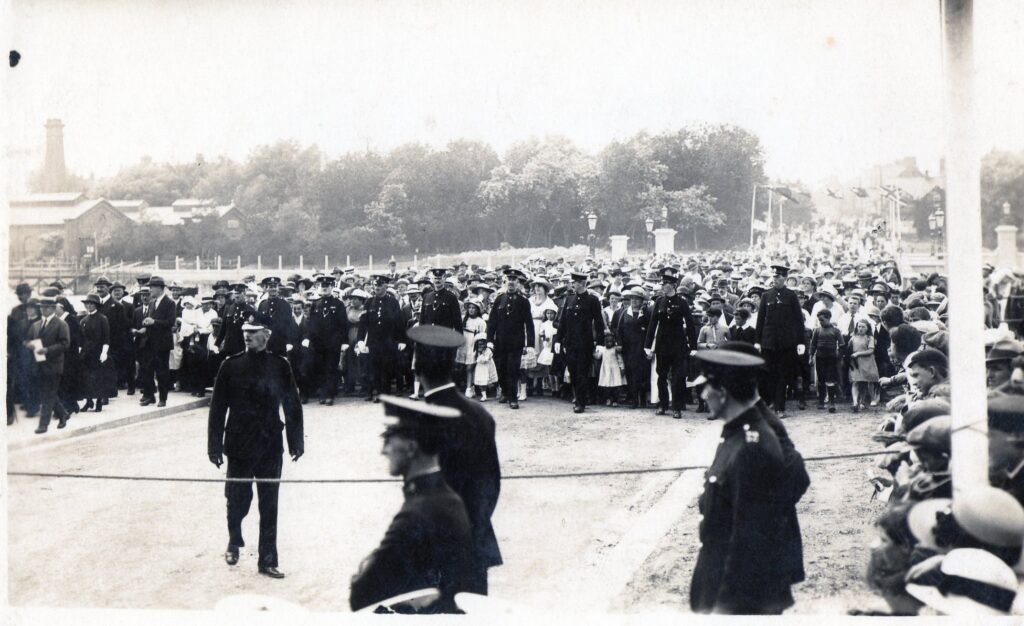
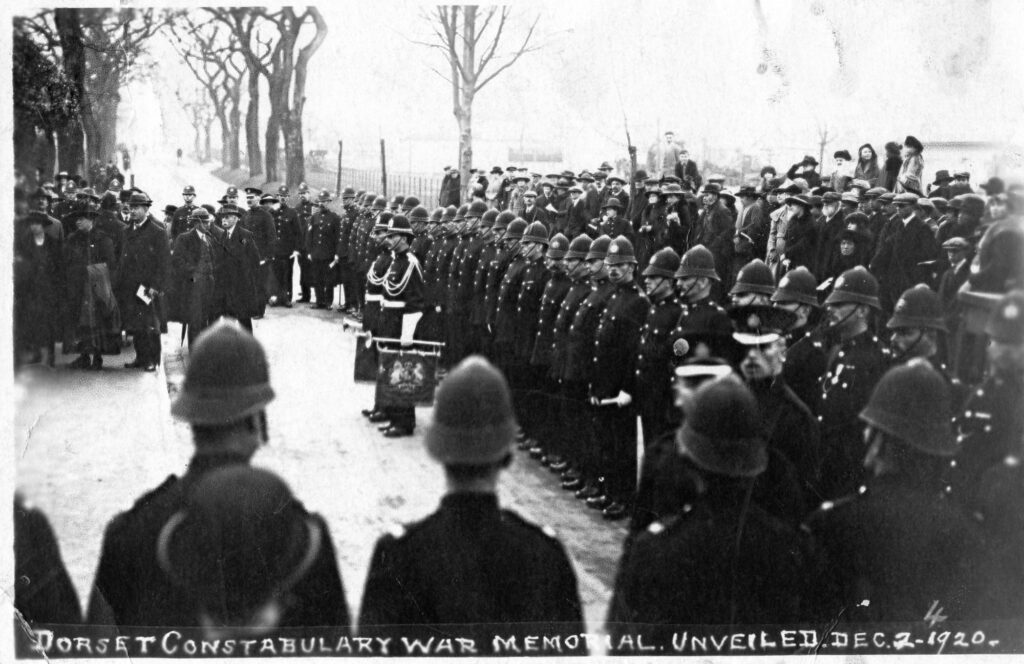
The below photograph was taken after the unveiling of the 7-foot-tall, Portland stone memorial by His Majesty’s Lieutenant of the County the Earl of Shaftesbury, with the guard of honour at the rear.
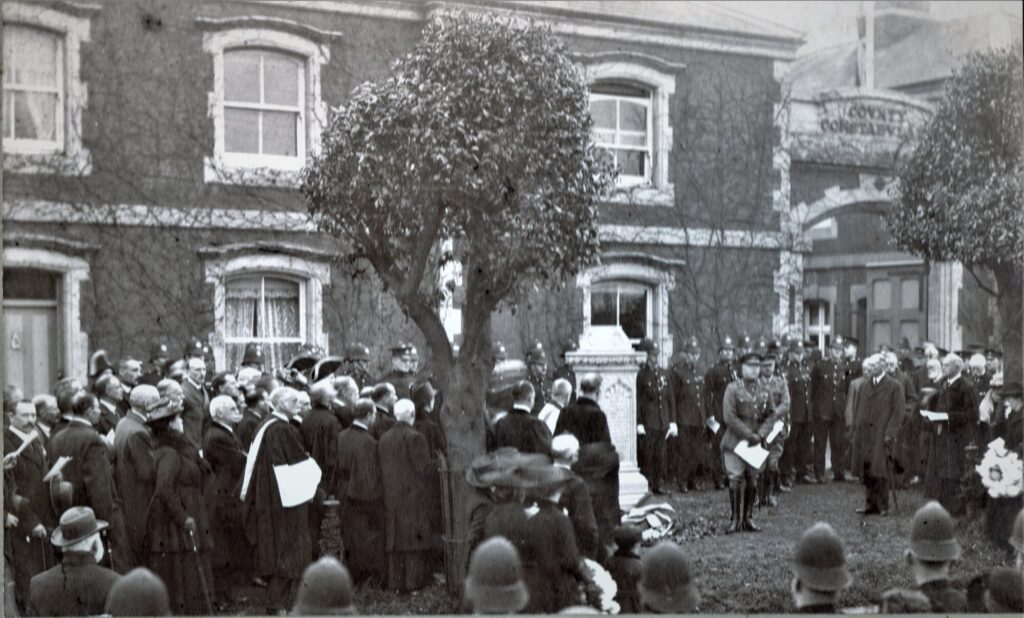
The ceremony which started at 3 o’ clock had over 100 Dorset policemen in a square formation and the senior men from each division placed wreaths around the foot of the Cenotaph. There were also wreaths placed by the C/C, a PC from the HQ staff and a policeman from the Weymouth Borough Police. The Weymouth Borough were represented by Sgt’s Richard PELLS and Wilfred PUGH and Detective Albert MOORE and ten other Constables.
The following officers acted as a guard of honour, all of whom have been in the Constabulary before the war and served overseas:
Insp William WHITE, PC’s Tom DURANT, Joseph OSBORNE and Fred BURROUGH of the Blandford Division;
PC’s Fred NORRIS (MC), Alfred WINTLE and George DIMENT of the Bridport Division;
PC’s George GENGE, Percy COPP, George CHARLTON, Edward WELSH and Esau BAILEY of the Dorchester Division;
PC’s Arthur YOUNG, William LOCKYER, Edwin BEST, Herbert SCREEN , Samuel LAKE and Silas BARTLETT of the Poole Division;
PC’s Alfred CASE and Percy LOVELACE of the Portland Division; PC’s Ernest PARK and Walter TOLLEY of the Sherborne Division;
PC’s William LEWIS, George MAGRIE and Alfred DURANT of the Wareham Division;
PC’s BARRETT, William BARTLETT, Reg WOOD, Sidney OSMAN and Reuben BOWERING (MM) of the Wimborne Division,
Lastly, Sgt Sidney BAIGENT and PC Tommy CARTER from HQ.
Amongst those in attendance were local dignitaries, members of the DSJC, CC Capt GRANVILLE and his wife, Deputy CC Mr William PLUMMER, Superintendents Ernie THOMAS (Bridport). William MILLER (Portland) and Richard HUSSEY (Dorchester) and also Ex Supt’s Arthur SWATRIDGE, William SAINT, George BURDEN and Arthur KING.
The memorial which has the Constabulary badge also has the names of the 10 fallen officers.
The words inscribed on it are: “ THIS MEMORIAL IS ERECTED BY THE MEMBERS OF THE DORSET CONSTABULARY IN MEMORY OF THOSE WHO, AS VOLUNTEERS, LAID DOWN THEIR LIVES FOR THEIR GOD, THEIR KING AND THEIR COUNTRY, IN THE GREAT WAR 1914-18.”
At the end of the service police trumpeters PC’s Fred FALL and George DYER played “The last Post”.
At some point, in the 1970’s the Cenotaph was moved from Dorchester to the new HQ at Winfrith. Here are some photographs taken by police pensioner Dave SEABRIGHT at the Remembrance Day Ceremony at Winfrith in 2015.
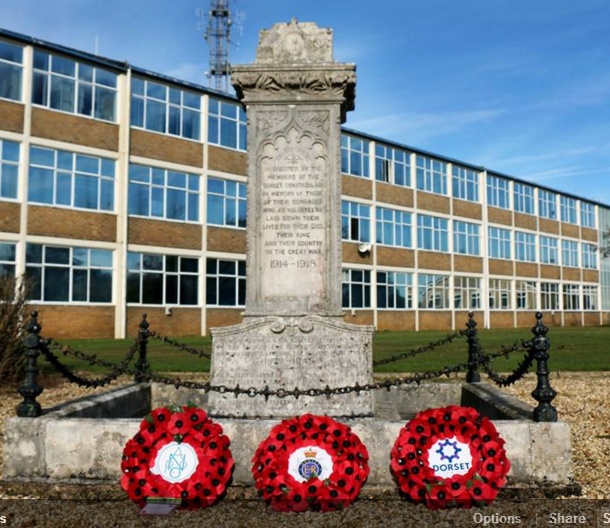
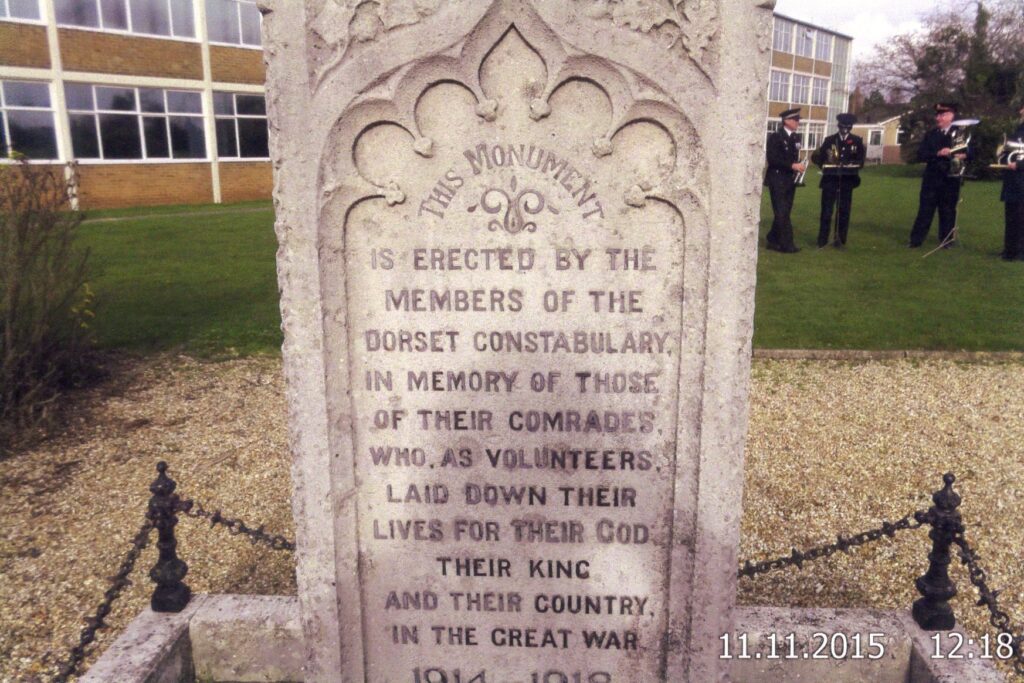
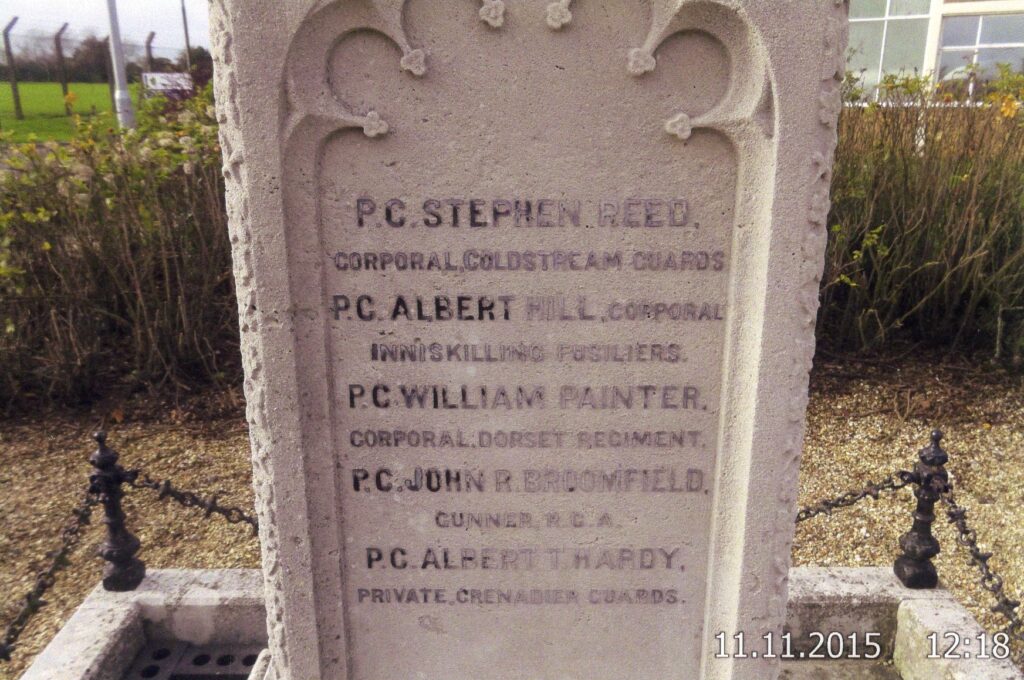
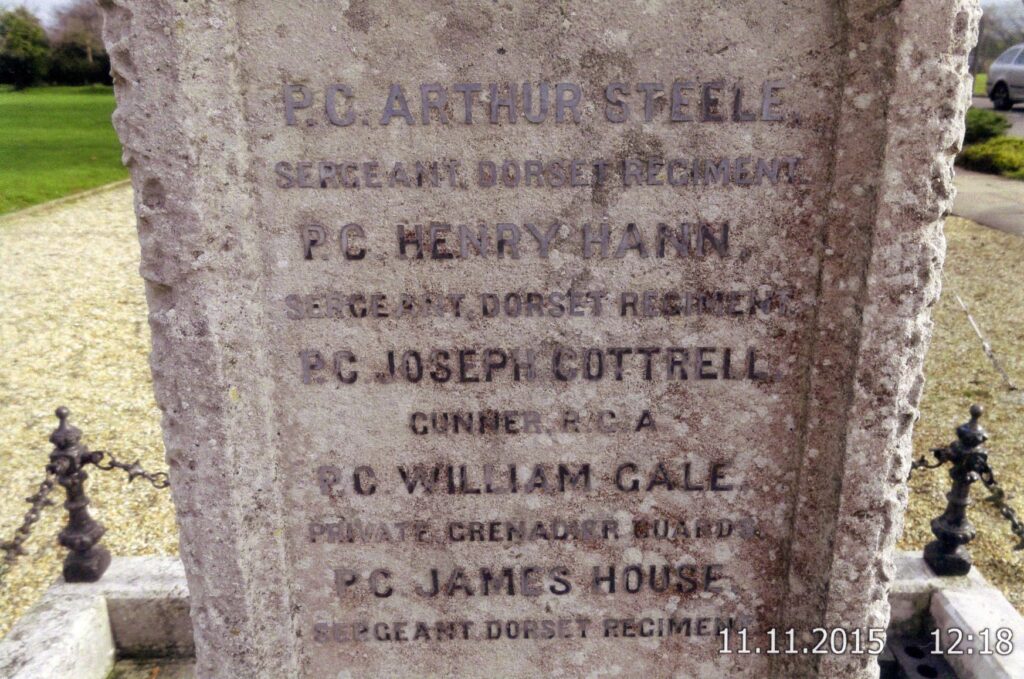
In 2007, Sgt Brian MARLOW (now retired) visited some of the graves of the officers that fell whilst fighting abroad. He left a wreath on behalf of the Force beside each grave and a year later visited William PAINTERS grave. Here are some of his photographs.
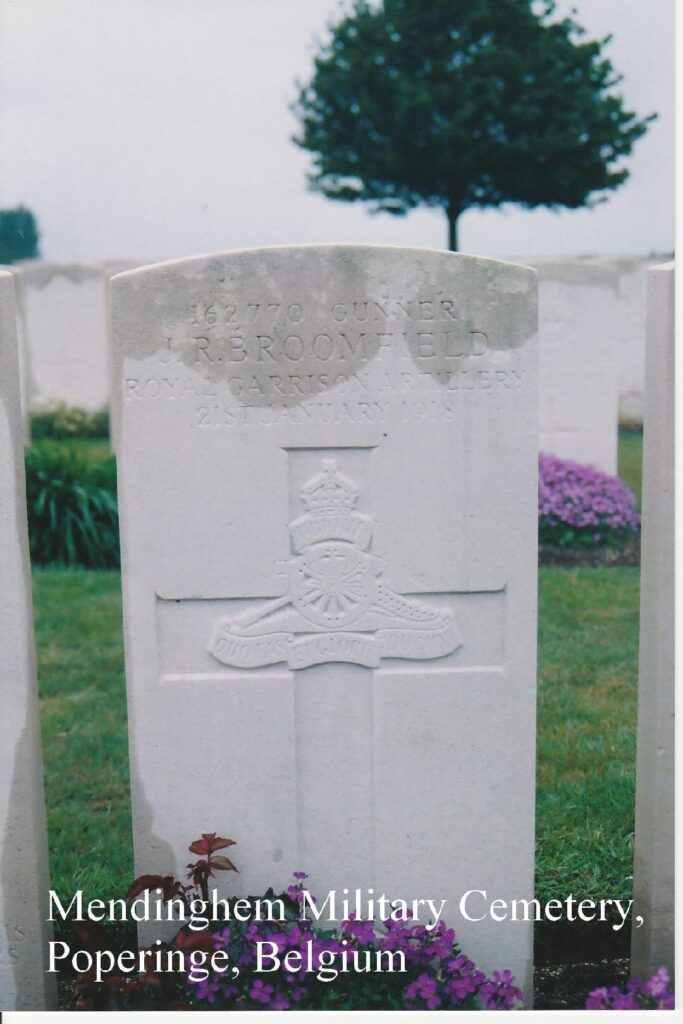
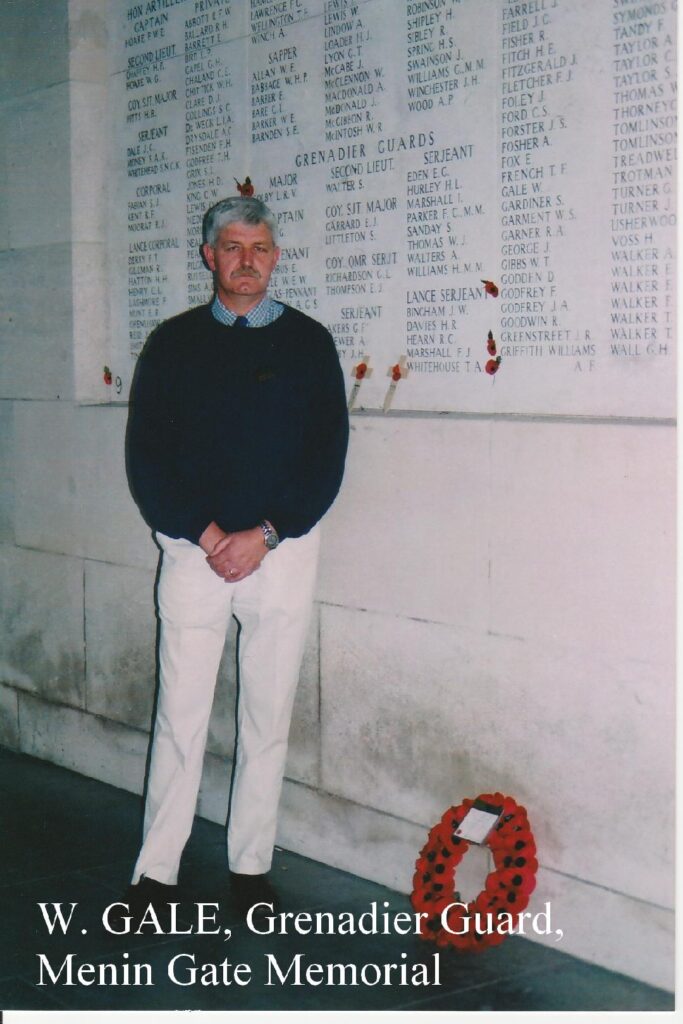
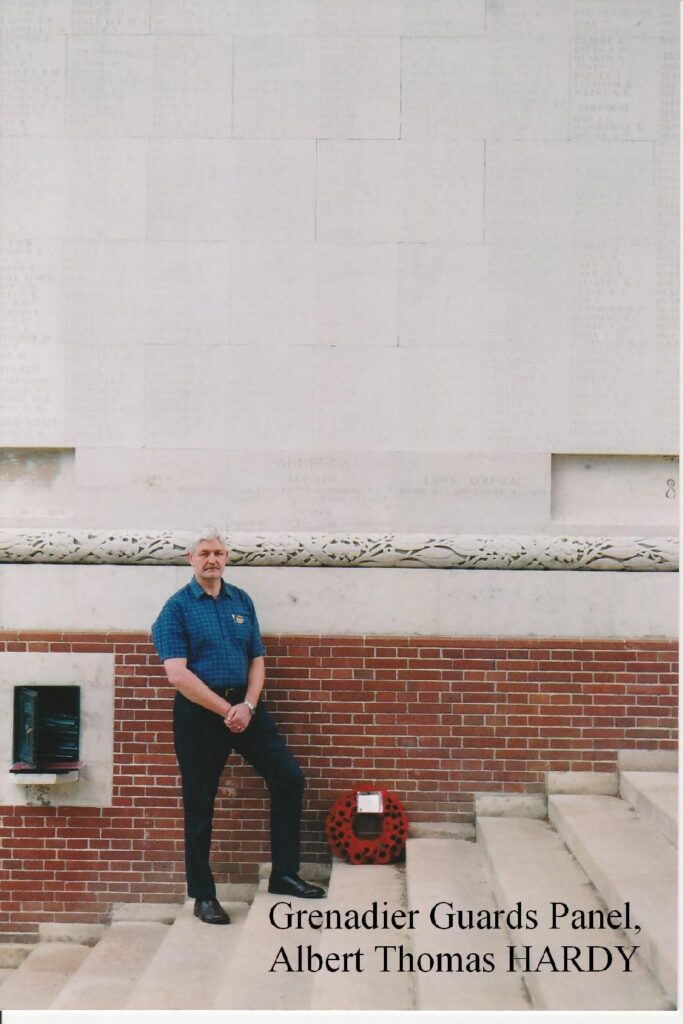
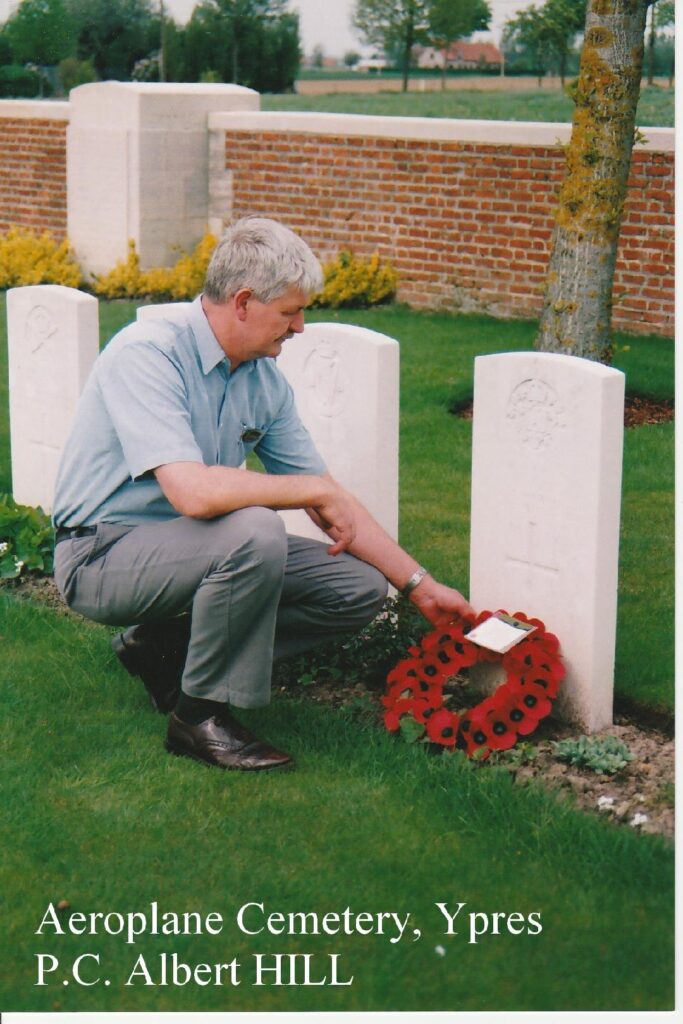
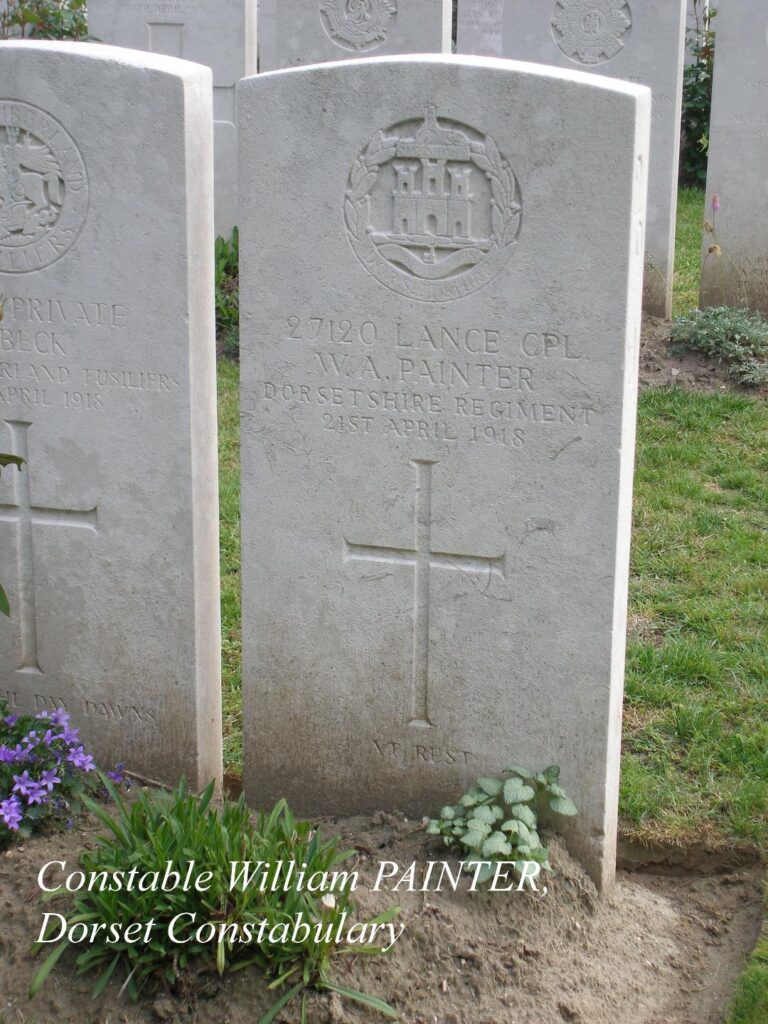
I would like to thank all the relatives and police pensioners who helped me compile and write this record of events. My family were very lucky, because all of our men came home, although they did suffer injuries whilst fighting abroad . My great uncle Cecil SWATRIDGE on return to Dorset was one of the new recruits in 1919 and became PC 98.